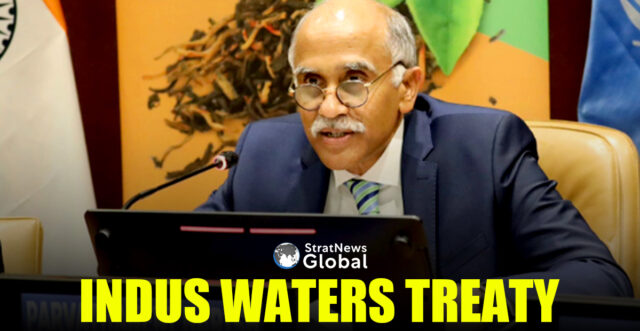India has firmly countered Pakistan’s assertions at the United Nations (UN) concerning the Indus Waters Treaty (IWT), accusing Islamabad of breaching the treaty’s spirit through decades of hostility, including warfare and state-sponsored terrorism.
Addressing a UN Security Council Arria Formula meeting on “Protecting Water in Armed Conflict – Protecting Civilian Lives,” India’s Permanent Representative to the UN, Ambassador P. Harish, said that Pakistan’s statements were part of a broader campaign of disinformation.
He emphasised that India, as the upper riparian state, has always behaved responsibly under the treaty’s framework.
Harish underscored that the 1960 water-sharing accord, forged in a spirit of goodwill, had been consistently undermined by Pakistan through three wars and thousands of terrorist attacks on Indian soil. Citing the April 22 terrorist attack in Pahalgam, Jammu and Kashmir—which killed 26 civilians—Harish reiterated India’s recent decision to suspend the treaty until Pakistan demonstrates credible and irreversible action against cross-border terrorism.
Cross-Border Terrorism Toll
He added that over 20,000 Indian lives have been lost to terrorism emanating from Pakistan in the past four decades. Despite repeated calls by India to modernise the treaty to address current challenges—such as clean energy demands, climate change, population pressures, and water security—Pakistan has refused to engage constructively.
Harish also noted Pakistan’s opposition to technical upgrades and infrastructure modernisation, even though current dam technology significantly enhances safety and efficiency.
He cited the 2012 terror attack on the Tulbul Navigation Project as an example of how Pakistan’s actions threaten civilian water infrastructure.
India’s Ministry of External Affairs echoed this stance before a parliamentary committee, stating that the decision to suspend the IWT was justified given drastically altered ground realities.
Misri Briefs Indian Envoys
Foreign Secretary Vikram Misri also briefed Indian envoys to 33 countries and the EU, stressing that Pakistan’s intransigence and continued support for terrorism had destroyed the goodwill on which the treaty was based.
“The unrelenting cross-border terrorism from Pakistan has hindered India’s ability to fully utilise the treaty’s provisions,” the MEA said, adding that a modernised framework is essential to cope with climate change, glacial melt, clean energy transitions, and 21st-century water management needs.
(With inputs from IBNS)





